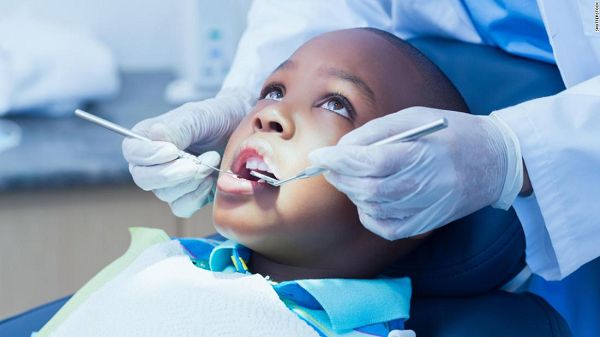
Kids’ dental problems can be corrected,seek early treatment
A Dentist at the Tema Polyclinic, Dr Albert Filson, has urged parents to send their children for dental check six months after birth for early detection of dental problems.
He explained that during this period, defects such as tongue-tie and double formation of teeth (crowded teeth) could be identified and corrected.
He said it was important for parents to send their babies for such dental checks because most children have their primary teeth around that period, adding that an early visit to the dentist could help to identifysuch problems for the necessary correction.
Dr Filson, who was speaking in an interview, said tongue-tie, which is a medical condition, could cause problems such as speech and eating difficulties if they were not diagnosed and corrected at the early stages of a child’s life.
Dr Filson said tongue-tie, which was known medically as a restricted lingual frenum, is a tissue that connects the tongue to the floor of the mouth and in some cases, is tighter or thicker than it should be.
‘’This situation could physically restrict the movement of the tongue and also prevent it from positioning itself in the correct place,” Dr Filson added.
He said the double formation of the teeth (crowded teeth), which is common among children, often affected their confidence.
![]()
According to Dr Filson, double formation of teeth (crowded teeth) is in different categories such as a ‘retained primary teeth’ – a situation where the permanent teeth grew with the primary teeth, which was the commonest condition children suffer from.
He explained that there was also the ‘supernumerary teeth’, where too many teeth grew anywhere in the mouth including curved areas which were attached to the jaw.
Another condition the dentist mentioned was the ‘odontome’, which he said could be hereditary, was also a situation whereby extra teeth grew on the same teeth.
Dr Filson added that childhood habits such as prolonged sucking of the thumb and tongue thrusting could affect the alignment of the teeth and cause the movement of the teeth either a little forward or backward.
He further called on parents to take their children to the dentist at least twice a year to avoid dental problems later in life.
He stressed that dental problems could be corrected at any stage of a person’s life for healthy living.
